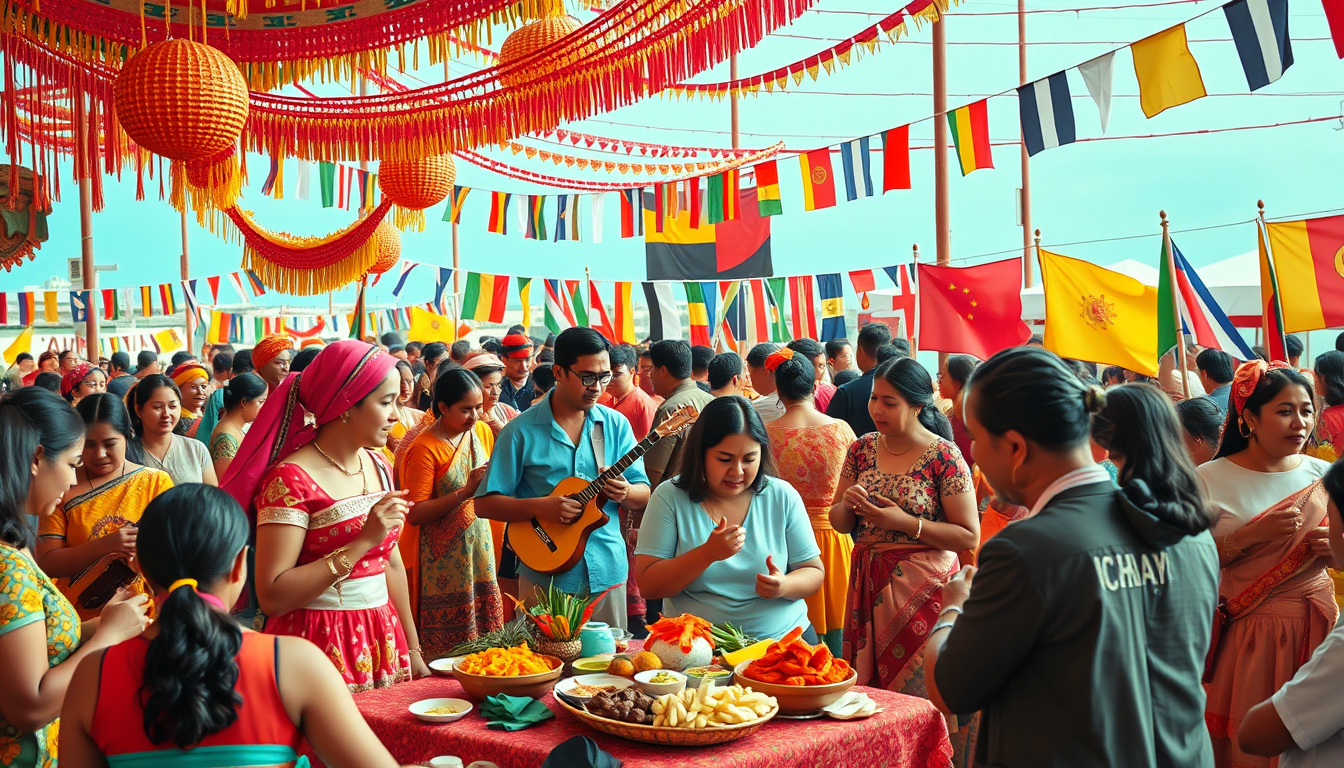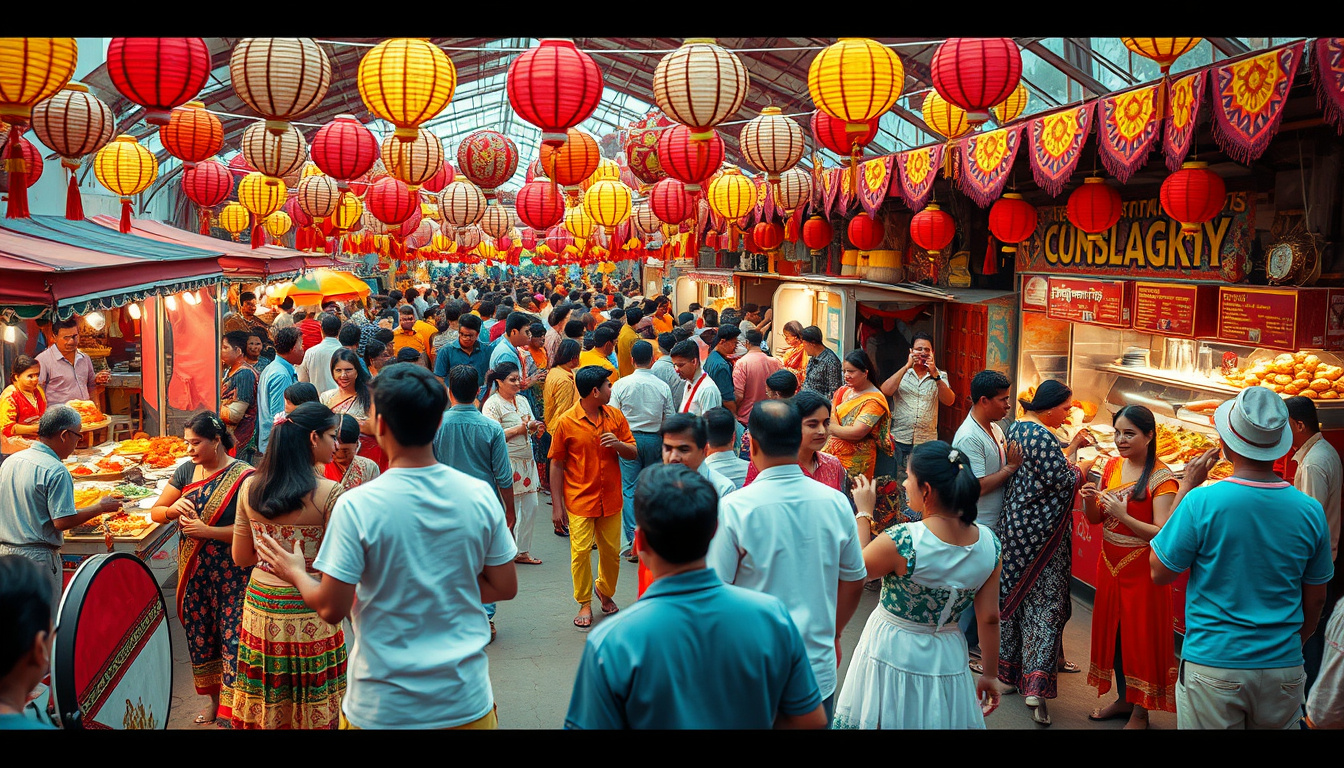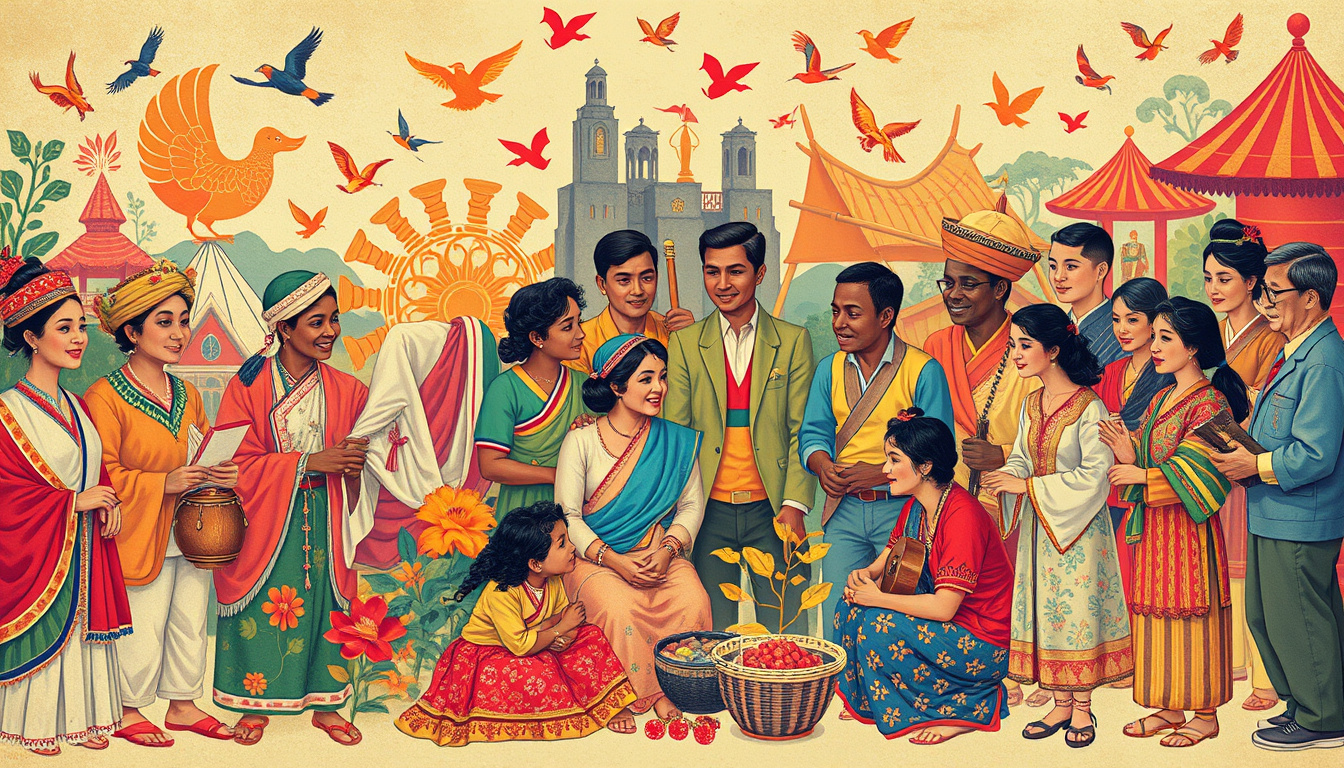Cultural appreciation events are gatherings designed to celebrate, educate, and appreciate the diverse cultures that make up our communities.
These events play a crucial role in fostering understanding and respect among different cultural groups, showcasing traditions, art forms, and cuisines that might otherwise go unnoticed.
In this article, we will explore the significance of cultural appreciation, provide examples of successful events, offer tips on how to organize your own, and discuss potential challenges to consider when planning such an event.

The Main Points:
- Cultural appreciation events celebrate diversity and foster understanding among different cultures.
- These events play a crucial role in promoting respect and reducing misconceptions about various cultural practices.
- Successful events often include food, music, art, and stories that highlight the richness of different cultures.
- Organizing a cultural appreciation event requires careful planning, community involvement, and an understanding of cultural sensitivities.
- Challenges may include addressing cultural stereotyping and ensuring inclusive participation from all community members.
What Are Cultural Appreciation Events?
Cultural appreciation events are organized gatherings aiming to celebrate, educate, and promote understanding of diverse cultures.
These events serve as a platform for individuals to experience the richness of various traditions, arts, and customs firsthand, fostering a spirit of respect and curiosity.
Typically featuring performances, workshops, art displays, and culinary experiences, cultural appreciation events are vital for enhancing community engagement and dismantling stereotypes.
By participating in these events, attendees not only broaden their worldview but also strengthen communal bonds, ensuring that all cultures are valued and recognized.
In a globalized society, these events play a crucial role in building inclusive environments where diversity is celebrated.
The Importance of Cultural Appreciation
Cultural appreciation events play a vital role in fostering understanding and respect among diverse communities.
These gatherings provide a platform for people to celebrate and share their unique traditions, art, music, and cuisine, allowing attendees to gain insights into different cultures.
By participating in cultural appreciation events, individuals not only enhance their knowledge but also contribute to the dismantling of stereotypes and prejudices.
Such events emphasize the importance of inclusivity, inviting everyone to learn and engage in meaningful conversations that bridge cultural gaps.
Ultimately, they create a rich tapestry of shared experiences that benefit both individuals and society as a whole.
‘Diversity is the one true thing we all have in common. Celebrate it every day.’ – Author Unknown

Examples of Successful Cultural Appreciation Events
Cultural appreciation events are a powerful way to foster understanding and respect between diverse communities.
One notable example is the annual International Festival held in cities like Seattle and San Francisco, where attendees can immerse themselves in various cultures through food, music, and art.
Another successful event is the Multicultural Festival in Australia, which showcases traditional performances, workshops, and artisan markets, celebrating the country’s rich Indigenous and immigrant heritage.
Additionally, university-hosted cultural appreciation events, such as those organized during heritage months, often include lectures, film screenings, and interactive activities, providing educational insights while promoting dialogue among students of different backgrounds.
These events not only highlight the beauty of cultural diversity but also encourage community engagement, making them vital components of societal progress.
How to Organize a Cultural Appreciation Event
Organizing a cultural appreciation event can be a rewarding experience that fosters understanding and respect for diverse cultures.
To begin, it’s essential to define the purpose of the event and decide on a theme that resonates with your audience.
Next, gather a dedicated team of volunteers who share your passion and can help brainstorm ideas, secure funding, and coordinate logistics.
Choose a suitable venue that accommodates your anticipated guests and reflects the spirit of different cultures.
Don’t forget to curate a diverse program that includes food tastings, cultural performances, and interactive workshops that engage attendees.
To maximize outreach, promote your cultural appreciation event through social media, local community boards, and schools, ensuring to emphasize the value of cultural diversity.
Lastly, gather feedback post-event to learn what worked well and what can be improved for future celebrations, thereby enriching the community’s understanding of different cultural backgrounds.

Challenges and Considerations in Cultural Appreciation
Cultural appreciation events can serve as vibrant platforms for celebrating diversity, fostering understanding, and building community connections.
However, organizing these events comes with its own set of challenges and considerations.
One major challenge is ensuring authentic representation of the culture being celebrated; it is vital that the voices of community members are heard and prioritized rather than appropriated.
Additionally, event organizers must be mindful of the potential for cultural stereotyping, which can undermine the very appreciation they seek to foster.
It is essential to create educational components that provide context and depth to cultural practices, allowing attendees to engage meaningfully with the cultures showcased.
By addressing these challenges, cultural appreciation events can transform into powerful tools for promoting intercultural dialogue and respect.
Good To Know:
What are cultural appreciation events?
Cultural appreciation events are gatherings or activities designed to celebrate and promote understanding of diverse cultures, fostering respect and appreciation for cultural differences.
Why are cultural appreciation events important?
These events play a vital role in building community, enhancing intercultural dialogue, reducing stereotypes, and promoting inclusivity by allowing individuals to learn about and experience various cultural traditions.
Can you give some examples of successful cultural appreciation events?
Examples include food festivals highlighting various cuisines, cultural workshops showcasing traditional arts, music and dance performances from different cultures, and multicultural fairs where organizations share their heritage.
How can I organize a cultural appreciation event?
To organize an event, start by defining your goals, gathering a team, and selecting a diverse range of cultural representations.
Plan engaging activities, secure a venue, promote the event, and ensure accessibility for all participants.
What challenges might I face when organizing a cultural appreciation event?
Challenges may include managing diverse expectations, securing funding, navigating cultural sensitivities, and addressing potential stereotypes or misconceptions, which requires careful planning and open communication with cultural representatives.
————————————————————————
Follow the Bimoseto family as we explore the world, one delicious dish at a time! Get our travel tips, restaurant recommendations, and adventure stories – and get inspired for your journeys!
